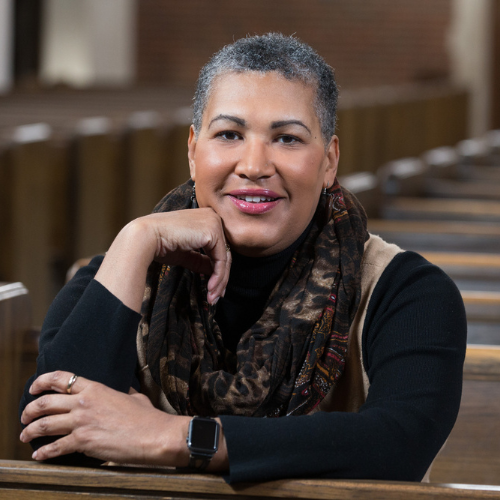Commentary on John 21:1-19
Details are important. The writer of the good news as recorded in John holds to details to the very end.
Today, as we look back at these texts, our tendency is to see the triumph. In the moment-to-moment uncertainty of “what it all means,” hindsight’s assessment can overshadow the strength-building steps of the journey. The power of narrative is the lessons lodged in the dramatic details. The writer has shared with the readers the purpose of the reports.
Rather than mere apologetic or intellectual proofs, the writer of John brings testimony to the invitation that has always been the concern of the God of Israel: the redemption and reconciliation of all humanity and creation. For that reason, another chapter indicates we have not arrived at the end of the story. Resurrection appearances confirmed and Jesus’ Lordship confessed is an invitation, not a conclusion. Having heard the Easter events, what is there for the community to do now?
In a season of great expectations and equally great disappointments, hours are enough to create doubt. Days pass into weeks since the reports of the empty tomb were confirmed by Jesus’ appearances among those who knew him best. The disciples were waiting on the Spirit Jesus had promised but they didn’t know what to do while they waited. Going back to what they did before all the hope and hype seemed a good option. But the events of triumph over tragedy are not to send the disciples to a life of their past.
The details of this narrative are brought together in the end like the merging of Marvel Comics storylines. The disciples have been disillusioned. Their idealism had been assaulted by reality, and the seeds of faith were now scattered in upturned soil.
A consequence of the departure of Jesus, the delay of his promised return, and a deficiency in their community — the place that was to be a safe harbor when everything else has come crashing down. One of their own had betrayed Jesus: handed him over to the enemy with a gesture of devotion. Peter had sworn he had no knowledge of the Galilean, and certainly no allegiance to him. Disenchanted by the humiliating reversal of their plans to overthrow their political enemies, only John bothered to witness the crucifixion.
Hindsight might suggest that Judas acted out of religious zeal, but his suicide exposes his own disappointment. Peter surely feared for his own survival, despite his recent promise to follow Jesus come what may. The other disciples enjoyed the thrills of being a part of the coming revolution, but it hadn’t occurred to them that the victory would not come to pass in their lifetime.
Delayed gratification has always been difficult for the children of God. Peter and his friends are living in the meantime — the time when we wait on God’s next move. What do we do when we are waiting for God’s next move?
Peter turns back to the life they once knew. He plans a late-night fishing trip, and seven of the eleven show up. This attempt to return to the way things were ignores that the encounter with Jesus gave them a greater mission.
The writer presents this familiar activity as a distraction from the greater mission. Failing to move forward, career fishermen failed to catch anything all night long. So their impatience and confusion is marred with disappointment. This makes John’s narrative allusion noteworthy. Failure in fishing brings back the failed mission felt on Friday night. Unachieved goals mirror the anticlimax when the resurrected Jesus appears with promises of power and then leaves again at the moment of their recognition.
Confusion sets in as they realize they can’t go back, and they don’t know the way forward. The entire narrative had been an invitation to join with Jesus in God’s mission — a mission that is not about heaven when we die or converts to a religion. Jesus’ disciples are doers.
The disciples are still on a journey of discovery marked by relationships with respected friends and loved ones. They have to recover the habits of discipleship they practiced for three years: regular experiences of God intruding on the ordinary, followed by lengthy discussions about seeing the difference God’s grace makes in the lives of people who encounter acts of love and kindness. Up close and personal ministry.
The challenge for the disciples was to be the bridge for someone else to experience justice. The disciples have to grasp who they now are in light of the resurrection. Their old occupations have been transformed into a godly mission. A mission that is as unpredictable as fishing all night and catching nothing, and as intimate as a breakfast on the beach with a friend who knows how much you love them.
When Jesus commissioned Peter, he didn’t send Peter out in search of instant conversions. Jesus said feed my sheep. This story stands in opposition to the notion of packing your bags and waiting to cash in on that fire insurance policy with its eventual pie-in-the-sky payoff. It also suggests more than the big catch as a metaphor for large church initiatives, mega-church ministries, and televised revivals that reach millions. Jesus leaves the many to speak to one with forgiveness, intimacy, and invitation.
It has been two millennia since the first reports of the empty tomb. Many have been blessed by believing without seeing. Still, waiting for God’s next promise to be fulfilled leaves us not knowing what to do. It seems a viable option to go back to a way of living that isn’t dependent on the hope and hype.


May 5, 2019